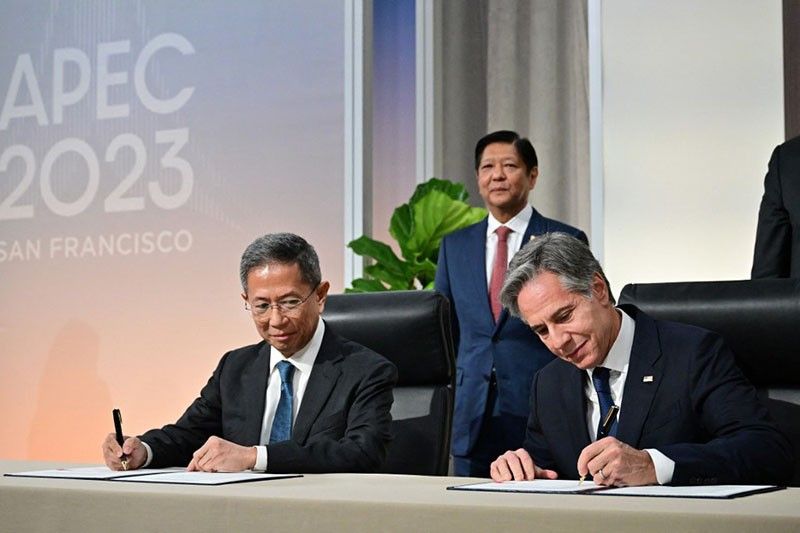Philippines, US ink civil nuclear cooperation pact

MANILA, Philippines — The Philippines and the United States signed Friday a landmark agreement that would facilitate civil nuclear cooperation between the two countries, lauded by President Ferdinand Marcos Jr. as a “milestone toward a more energy secure and green” future.
The deal, known as 123 Agreement, will allow the transfer of information, nuclear material, and equipment from the US to the Philippines for peaceful purposes.
“With access to US material and equipment, the US and the Philippines will be able to work together to deploy advanced new technologies, including small modular reactors, to support climate goals as well as critical energy security and baseload power needs within the Philippines,” the US State Department said in a media note.
In a release, the Philippine energy department said the agreement streamlines licensing requirements for the private sector.
It also ensures compliance with nonproliferation criteria and the safeguards of the International Atomic Energy Agency.
Energy Secretary Raphael Lotilla and State Secretary Antony Blinken signed the agreement during the Asia-Pacific Economic Cooperation summit in San Francisco, California.
Negotiations for the 123 Agreement took around seven months.
Nuclear in energy mix
The current administration is turning its focus toward nuclear energy. During his first State of the Nation Address, Marcos said it was time to re-examine the country’s strategy toward building nuclear power plants.
On the campaign trail, he said the government should look into reviving the 621-megawatt Bataan Nuclear Power Plant—a venture by his despot father and namesake which was mothballed because of safety concerns.
“We see nuclear energy becoming a part of the Philippines’ energy mix by 2032, and we would be more than happy to pursue this path with the United States as one of our partners,” Marcos said.
“Nuclear energy is one area where we can show that the Philippines-US alliance and partnership truly works for our peoples, our economies, and the environment,” he added.
Groups such as the Center for Energy, Ecology and Development have warned that nuclear energy will not only pose dangers to host communities, but also block genuine transition to renewable energy.
The energy department targets to increase the share of renewable energy in the country’s generation mix to 30% by 2030, to 50% by 2040, and to more than 50% by 2050.
The power generation in the Philippines heavily relies on fossil fuels, with the country generating 60% of its electricity from coal, a significant contributor to planet-warming emissions.
- Latest
- Trending































